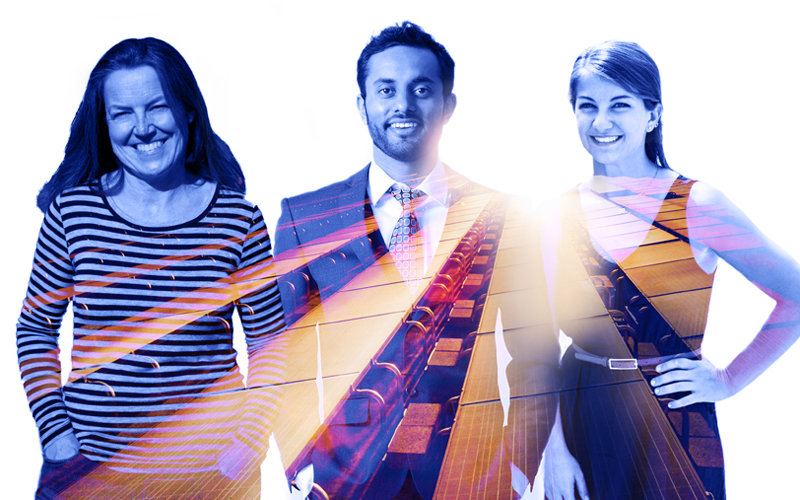
As Ginger Wireman drove to Irvine one day, the sight of a hilltop being graded to make way for more houses shocked her. That fateful drive, where she decided she didn’t want to “promote sprawl and habitat destruction,” sent the communications graduate back to Cal State Fullerton with a newfound passion and a new career path.
“I thought the environmental science program was perfect,” says Wireman ’89, ’96 (B.A. communications-advertising, M.A. environmental studies). “I could specialize in communications and education, and leverage that to protect resources.”
After graduation, she worked on habitat protection and restoration with the Nature Conservancy and other organizations before becoming an educational outreach professional with the Washington State Department of Ecology.
“Now I teach people about the Hanford nuclear site cleanup,” she says. “Hanford is a legacy of the Manhattan Project and through the Cold War produced about 64 percent of our nation’s plutonium.”
The site, almost 600 square miles, “is home to many rare species of plants and insects — some new to science, only having been discovered in 1993,” she explains.
While pursuing her graduate studies, she gained practical experience serving at CSUF’s Tucker Wildlife Sanctuary. “I learned so much with Prem Saint (now emeritus professor of geological and environmental studies) that I could apply to real-world issues,” she adds. “He taught us to look at a place and really think about what had happened through time and natural progression, and consider the current human impacts.”
Striking Out on His Own
Other CSUF alumni have also made their way into environment and sustainability careers. Deep Patel ’06 (B.A. business administration-entrepreneurship) was working in finance when he realized, “I wasn’t really happy … I didn’t value the work I was doing.”
Then he attended a conference where he met people who were excited about the possibilities and the field of solar power. “I had no background in solar but I was fascinated by the concept.
“I have to get involved,” Patel remembers thinking. “I was interested in the idea of starting my own business, but when I graduated, I didn’t think I was experienced enough.”
Patel thought about the opportunities he’d had at Cal State Fullerton — meeting with industry leaders; being grounded in business planning, organization and ways to build a business; and practical experience like serving on a student-consulting team — and decided to try.
Without that groundwork, he says, “I don’t think I would be where I am today.”
From an interest in solar, Patel created a blog and learned everything he could about the solar industry. “People started seeking my help,” and that led to becoming a solar systems manufacturer and distributor.
Today, as founder, president and CEO of Gigawatt Inc. and GoGreenSolar, Patel and his business partner Harold Tan employ 25 people, including fellow CSUF alumni, who work with home and business consumers, nonprofit organizations and the Federal government.
Finding Focus
Tamara Wallace ‘08, ‘13 (B.A., M.A. geography) considered a wide range of academic options before settling on her major. “Geography ended up defining my understanding of the world, and allowed me to develop the confidence to find a unique niche in the job market.”
While a grad student, Wallace took part in the University’s first Sustainability Tracking and Assessment Rating System (STARS) survey. The experience was reflected in her master’s thesis and her career.
As CSUF’s sustainability coordinator, Wallace is involved in facilities projects and efforts to incorporate sustainability into all aspects of the campus, including partnering with faculty members to integrate it into the classroom.
“My job is exciting and meaningful because I am working with cutting-edge and innovative techniques on water conservation, sustainable waste management, green energy, sustainable transportation and local food production. The moments of achievement are seen when the environmental importance, economic value and collaborative and community-driven accomplishments are recognized throughout our university.”